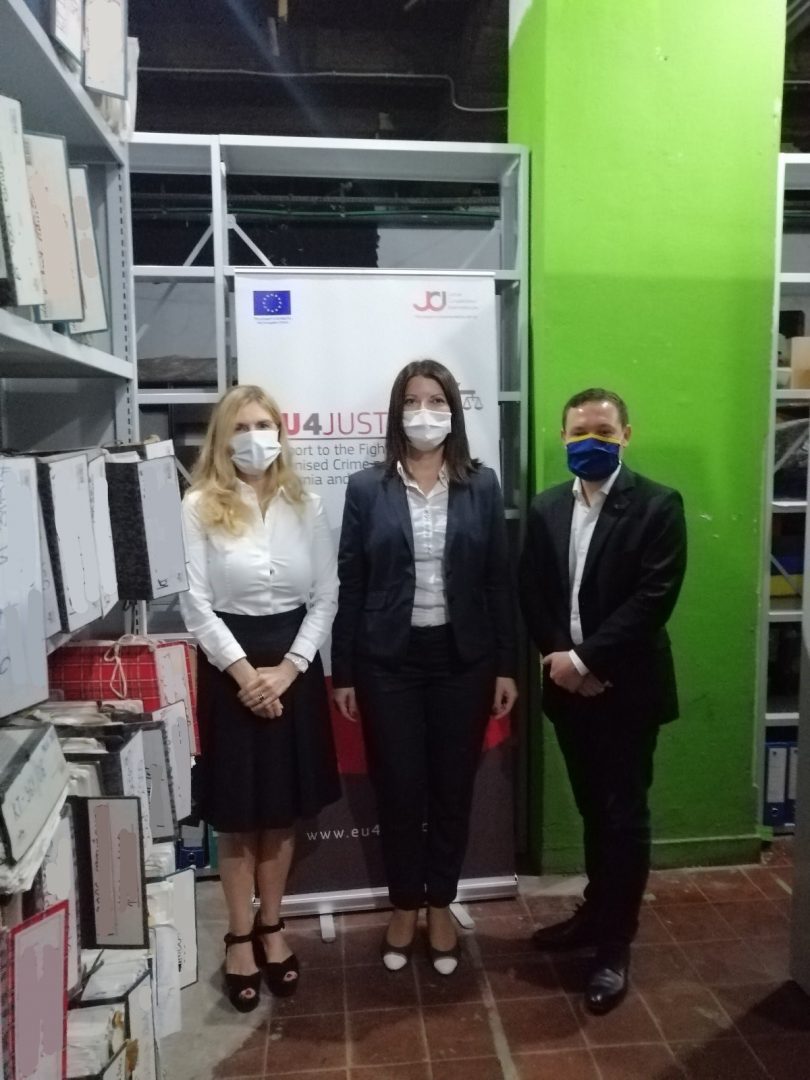19 August 2020, Sarajevo – Today the EU4Justice Project handed over urgently needed storage equipment worth 8,000 Euro to the Cantonal Prosecutors Office (CPO) in Sarajevo
The equipment supply comes in assistance of efficiency improvement measures undertaken by the CPO and will be used in the archive facilities of the CPO Sarajevo.
Chief Prosecutor of the CPO Sarajevo Sabina Sarajlija who initiated this cooperation, thanked the EU4Justice team for the swift response in these difficult times.
Head of Operations Section I (Justice and Home Affairs, Public Administration Reform) of the EU Delegation to Bosnia and Herzegovina Nicolas Bizel, welcomed the efforts of the CPO in Sarajevo to render its structures more efficiently and recalled that the “Expert Report on Rule of Law issues in Bosnia and Herzegovina” has found that operational inefficiency in cases of corruption, complex financial crime and organised crime are a cause of particular concern.
“All BiH institutions are encouraged to work more efficiently through the list of actions needed to make the necessary significant progress in the area of rule of law, as outlined in the Commission’s Opinion. The EU is ready to assist in this process, as for instance through the EU4Justice project that aims to be at the service of the Rule of Law institutions in BiH”, said Nicolas Bizel.
Isabelle Arnal, Team Leader of the EU4Justice Project said: “The Project was informed that the CPO Sarajevo was facing challenges regarding the inflow of KTN[1] cases and thus, we decided to provide immediate assistance with the supply of storage equipment combined with an advisory opinion on the efficient handling the KTN cases in prosecutor offices in BiH”.
EU4Justice is the capacity building project for the Rule of Law sector in BiH financed by the European Union in an amount of 2,2 million Euro.
The project aims to enhance the effectiveness, integrity, and professionalism of the institutions in the Rule of Law sector through tailormade interventions and activities involving multidisciplinary stakeholders, including judges and prosecutors, investigators, and members of relevant administrations and public agencies.
Since the project started in 2019, the project has extensively worked on capacity building for the judiciary representatives in organised crime and corruption.
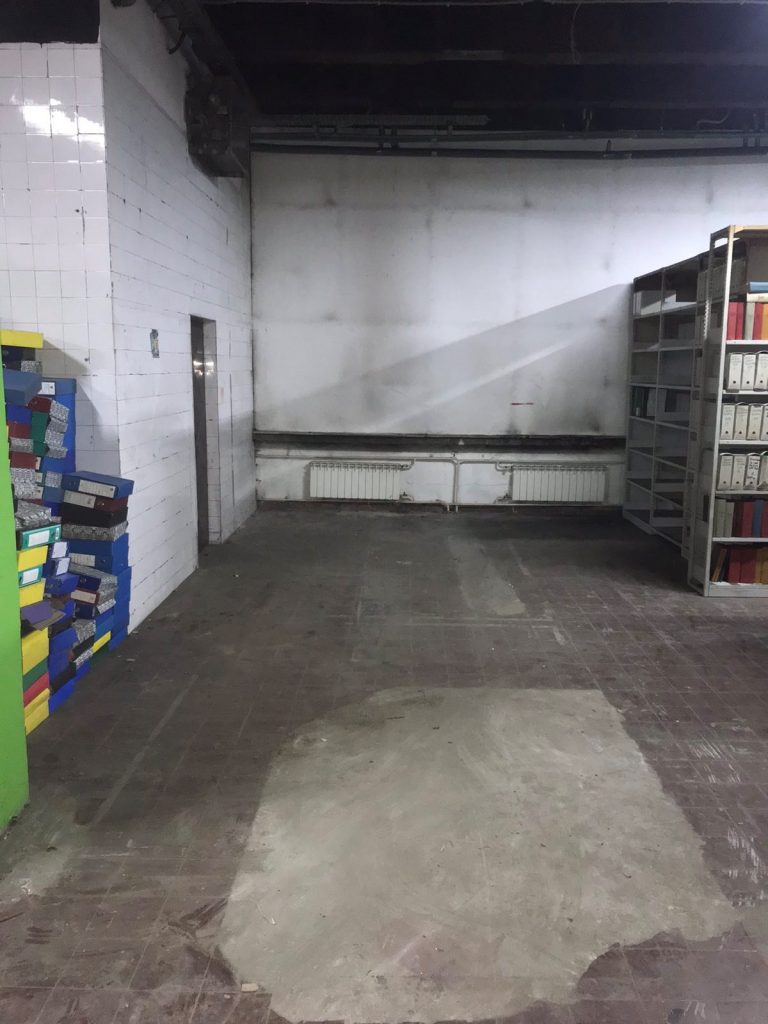
Before equipment installation 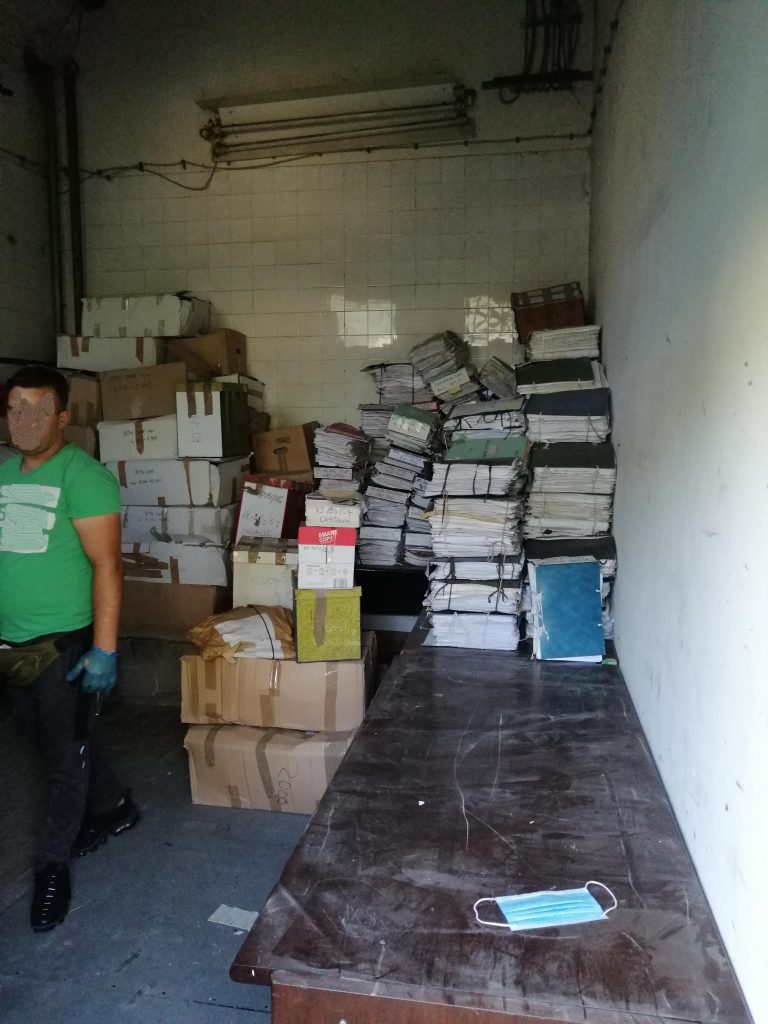
Before equipment installation 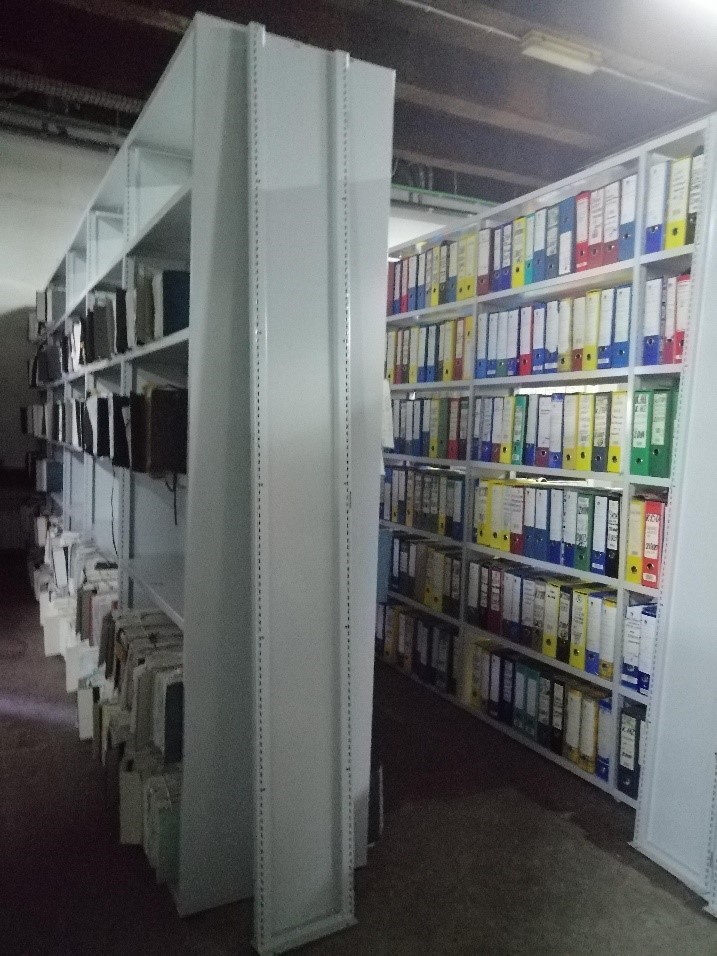
Shelves installed 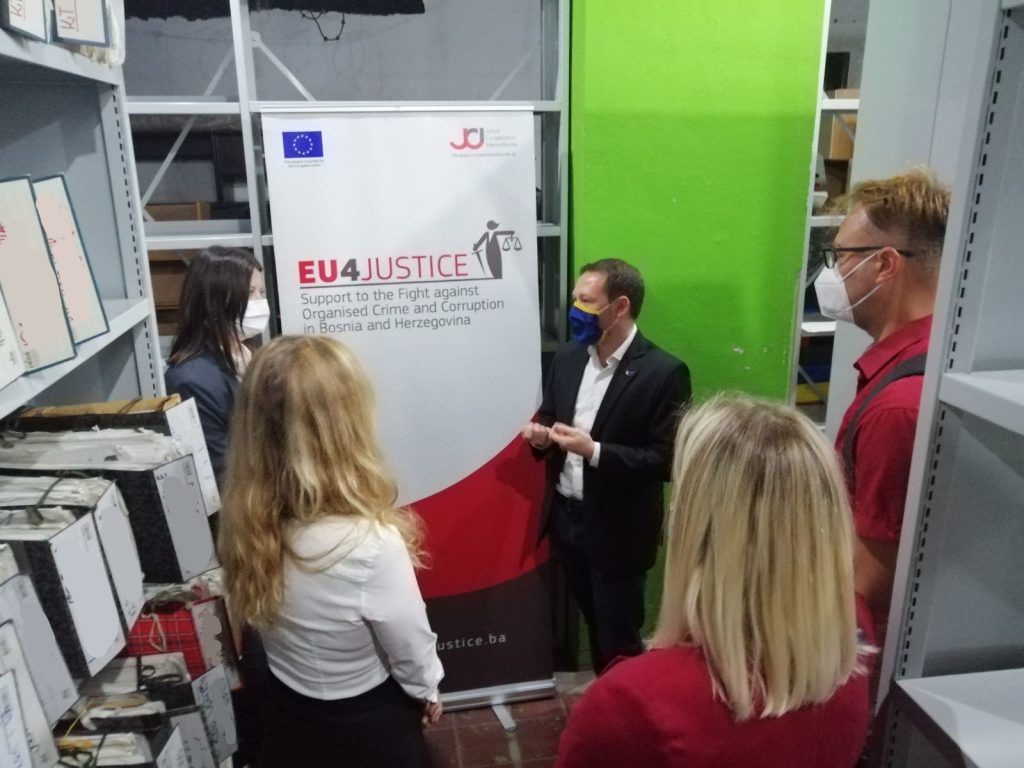
Handover ceremony 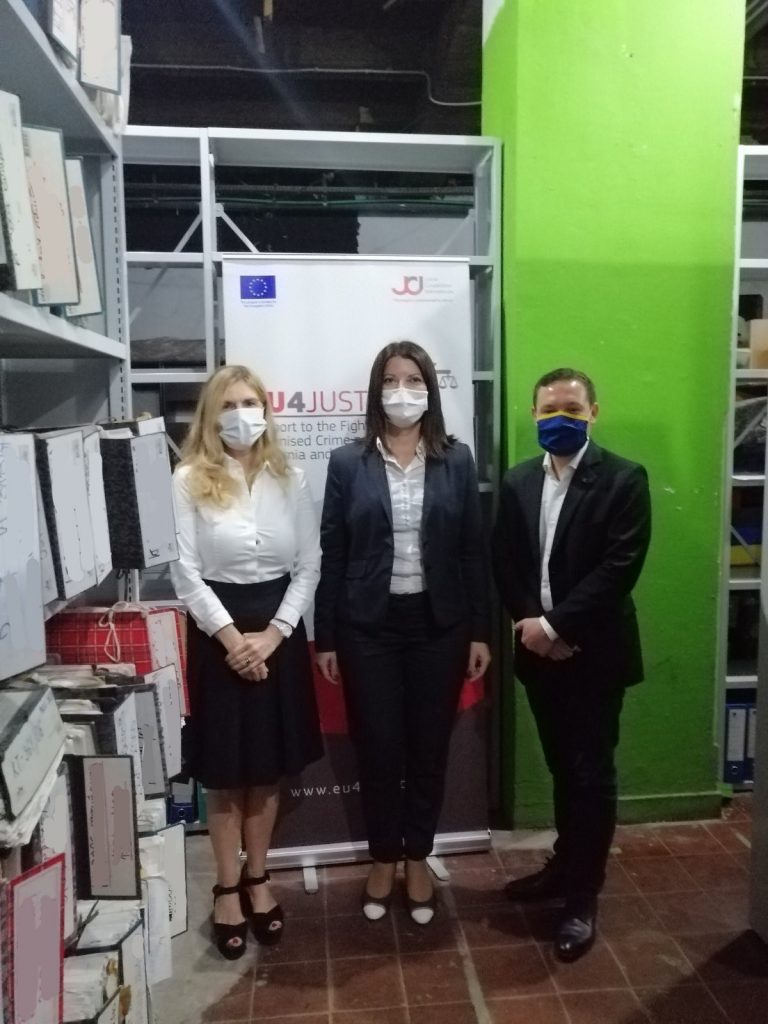
Handover ceremony
[1] In accordance with Article 70, paragraph 2) of the Rulebook on the Case Management System in Prosecutors’ Offices (TCMS), “KTN” is the mark for a “concrete criminal offence with an unknown perpetrator”.

